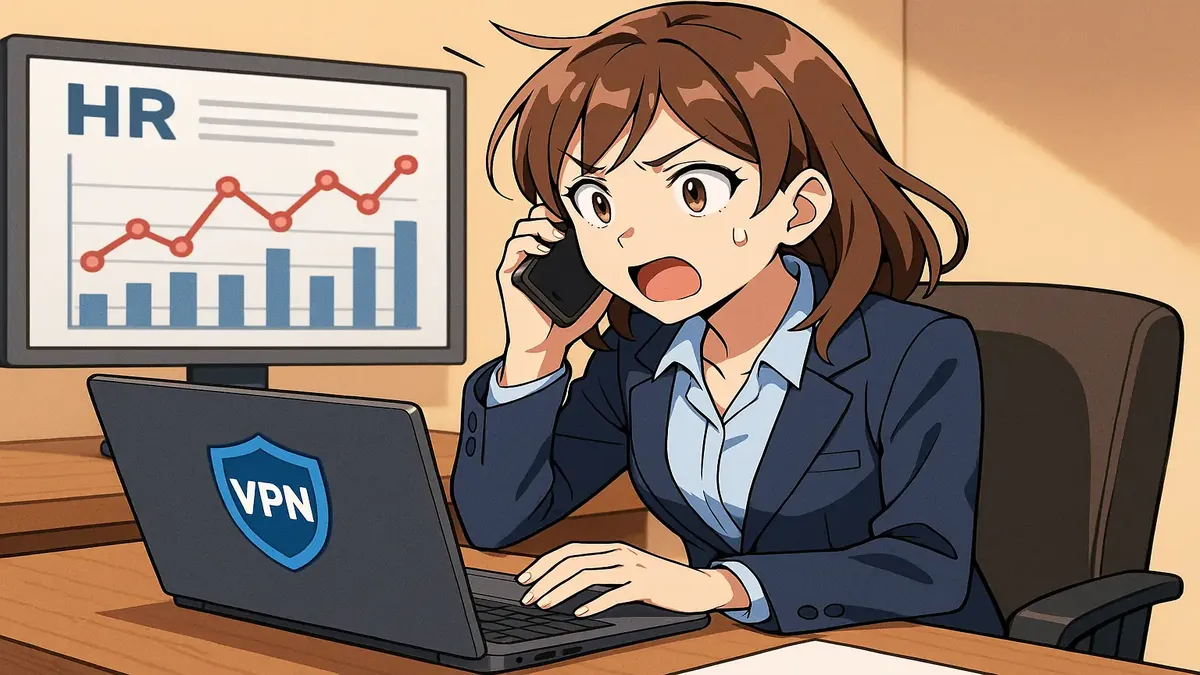How a Saturday VPN Call Nearly Turned into a HIPAA Nightmare: A Tech Support Tale

There’s nothing quite like a quiet Saturday ruined by a tech emergency—especially when it involves a doctor, a VPN, and a side of HR confusion. As any seasoned IT pro will tell you, the most unexpected support calls always seem to land when you’re least prepared, and sometimes, a simple password reset can spiral into a full-blown compliance crisis.
Imagine this: You’re sipping your coffee, enjoying a rare moment of weekend peace, when your phone rings. It’s Dr. Newbie, struggling to log into the company VPN. No big deal, right? That’s par for the course in tech support. But what started as a routine call quickly turned into a lesson in why HR and IT need to be best friends—especially when dealing with sensitive medical data.
The Call That Could Have Cost Everything
Our story comes courtesy of u/GreenEggPage on r/TalesFromTechSupport, where IT war stories abound. In this episode, the protagonist—let’s call them the Unsung IT Hero—was dealing with a sprawling medical practice: multiple doctors, multiple sites, and, you guessed it, multiple communication breakdowns.
On this fateful Saturday, Dr. Newbie rings up with VPN woes. Unsurprising; doctors are busy folks, and remembering a password you use “once in a blue moon” isn’t exactly top of mind when you’re saving lives. The IT Hero gets to work, chatting amiably with the doc and prepping a password reset.
And then, out of nowhere, Dr. Newbie casually drops, “Yeah, I’m down in [City Far Away]. I work for the hospital here and need a patient’s images, but [former employer] hasn’t sent them yet.”
Wait—what?
Cue the IT Hero’s Spidey-sense. “You’re… not with [customer] anymore?”
“No, I work for [hospital] now.”
Suddenly, this isn’t a password problem; it’s a security crisis. Our IT Hero, suppressing the urge to facepalm, swiftly disables the account and wishes the doc a nice day—while silently wondering how close they’d just come to a HIPAA violation.
The HR-IT Communication Breakdown
Let’s break down why this is such a big deal. In the world of healthcare, data security isn’t just important—it’s the law. HIPAA (the Health Insurance Portability and Accountability Act) has strict requirements on who can access patient data. Letting a former employee access sensitive information is like handing the keys to your house to someone who moved out last year. No bueno.
The real root of the problem? HR never told IT that Dr. Newbie had left. If you’ve ever worked in a medium-to-large organization, you know this dance all too well. Someone leaves, but their account stays active—for days, weeks, sometimes months. It’s an open invitation for data breaches, and in healthcare, the stakes are even higher.
On Monday, our IT Hero had a heart-to-heart with HR, driving home the point that timely communication isn’t just a bureaucratic box to tick—it’s what keeps the company out of legal hot water. One missed email could have led to a costly HIPAA violation, not to mention the reputational damage.
Lessons from the Trenches
So, what can we learn from this tale of VPNs and vigilance?
- Always Confirm Employment Status: If someone calls about a password reset, don’t assume they still work there. A quick check can save you from disaster.
- HR and IT Must Communicate: Offboarding should be a well-oiled process. When someone leaves, IT needs to know—immediately.
- Educate the End Users: Doctors (and other staff) should know that after leaving, they’re no longer authorized to access internal systems, even if they still have the credentials.
- Automate Where Possible: Consider tools that automatically disable accounts upon HR updates. Human error is inevitable; automation can bridge the gap.
The Takeaway: IT Isn’t Just About Fixing Computers
This story is a hilarious (and slightly hair-raising) reminder that IT support isn’t just about resetting passwords or fixing printers. Sometimes, it’s the last line of defense against regulatory disaster. And sometimes, it’s a gentle nudge to HR that, yes, you really do need to let us know when people leave.
Have you ever dodged a disaster thanks to a lucky question or a sixth sense for shenanigans? Share your own tales of tech support heroism in the comments below!
And remember: Always ask, “Do you still work here?” It might just save your company from its next big headache.
Original Reddit Post: VPNs and HR